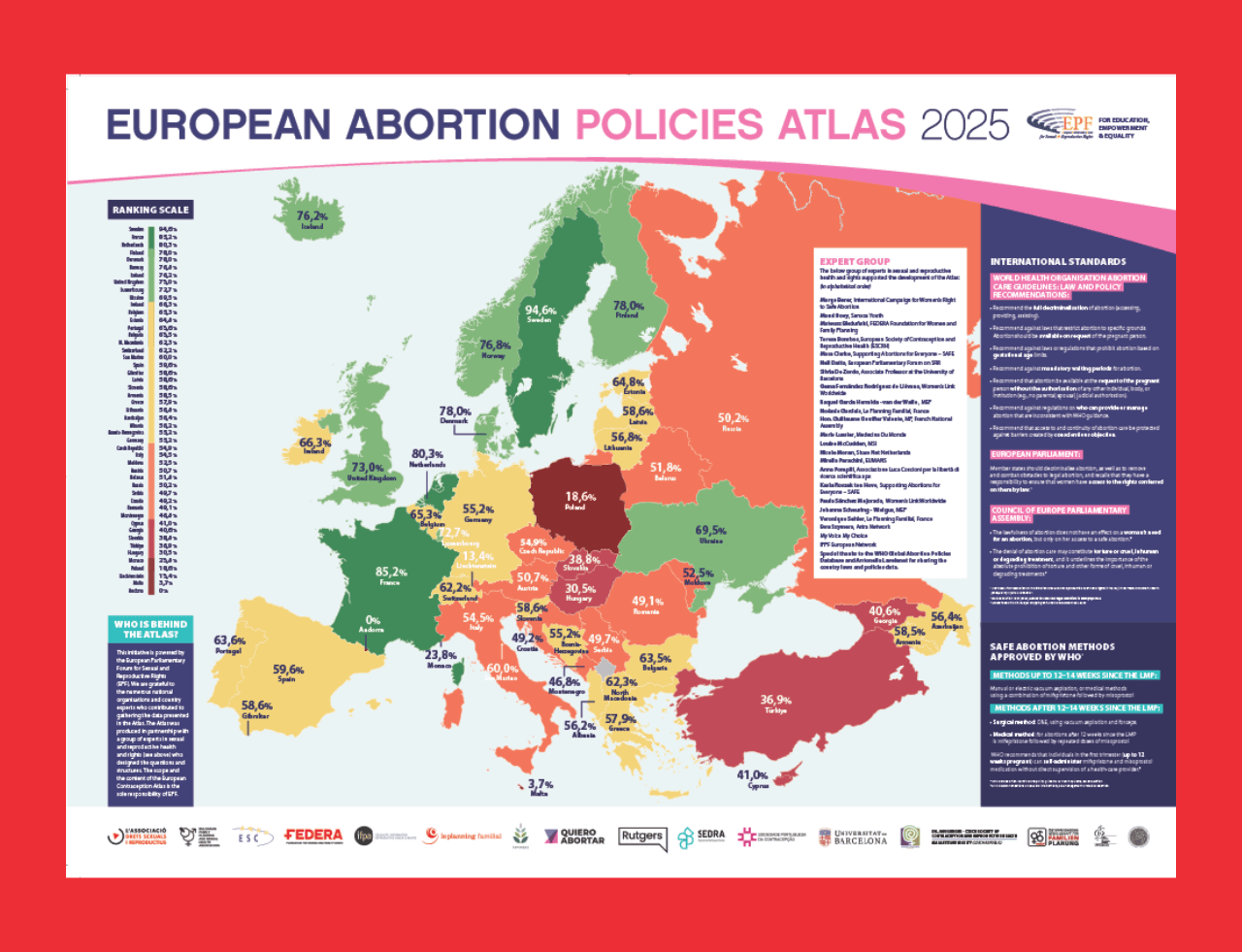Poland remains to be at forefront of battle over women’s rights and the right to a safe and legal abortion. In recent months, despite the success of the “Black Protest” in the last year we are witnessing attempts to further restrict the current, already very strict, legislation. However, this time the anti-choice groups, with clear and vocal support from the Catholic Church, are not aiming for a total ban of abortion or criminalizing women for the procedures. They are targeting one of the three legal instances which allow for a lawful termination of pregnancy – that is the situation in which women experience a pregnancy with fetal damage. In 2016 there were 1042 abortions that fall into this category out of a total of 1098 legal abortions in the entire country. 55 abortions were performed due to threat to woman’s life and one as a result of criminal act.
At this moment there are three legal initiatives aimed to ban abortion due to fetal malformation:
- civic initiative undertaken by the radical anti-abortion organization “Life and Family” in cooperation with Citizen Go;
- draft legislation submitted by a group of 100 right-wing MPs
- the Constitutional complaint regarding whether abortion due to fetal impairment is constitutional.
In opposition to these three anti-abortion proposals, representatives of pro-choice organizations, groups and parties established the “Save Women” Civic Committee which, as in 2016, prepared a draft bill to guarantee access to abortion, contraception, sex education and respectful antenatal care. The Committee has been established on the 24th of July and now has three months to collect at least 100 000 signatures to ensure that the law will be debated in the Polish Parliament.
The draft “Save the Women 2017” bill includes:
1) legal abortion financed from the state budget on demand until 12th week of pregnancy; after 12th week abortion would be performed due to a threat to woman’s health or life, in case of fetal malformation (until 24th week of pregnancy or if the fetus is unable to survive outside woman’s body without a deadline) and when pregnancy is a result of rape or incest (until 18th week of pregnancy);
2) free and accessible contraception;
3) emergency contraception available without medical prescription;
4) comprehensive sex education in schools;
5) obligation for hospitals and the National Health Fund to publish a list of doctors who invoke conscientious objection to deny performing legal abortions;
6) obligation for hospitals to find another doctor as a subcontractor who would perform an abortion when a physician hired by the hospital refuses to do so;
7) shorter deadline (7 days) for the Medical Commission to consider a patient’s complaint in case of refusal of abortion;
8) right for adolescents who have turned 15 years old to visit a gynecologist, a urologist and a dermatologist without parental consent.
Upcoming months will be rich in activities from the pro-choice groups aiming to raise awareness on the importance of both – endorsing and pushing the liberalization of the anti-abortion law and stopping the current anti-choice initiatives.




